Reducing Maternal and Child Mortality in Nigeria
In line with its mission to enhance the quality of life for Nigerians by supporting initiatives that improves access to healthcare, the TY Danjuma Foundation has been working with a range of partners to reverse the negative indices on maternal and child health. According to the Nigeria Demographic and Health Survey (2018 NDHS), the rate of under-five mortality is 132 deaths per 1,000 live births, while the infant mortality rate is 67 deaths per 1,000 live births. Maternal mortality ratio is 512 deaths per 100,000 live births. Thus, for every 1,000 live births in Nigeria, about five women die during pregnancy, childbirth, or within two months of childbirth. Clearly, there is a need for continuous investment in promoting maternal and child health.
To contribute to reversing the high rate of maternal and child mortality in Nigeria, the TY Danjuma Foundation supports evidence-based, innovative, and sustainable interventions that ensure mothers experience a healthy pregnancy and childbirth and children can thrive to realise their full potential through its Healthy Mother, Healthy Child programme.
The Foundation’s Healthy Mother, Healthy Child programme creates access to quality and affordable healthcare services especially in rural areas, by supporting projects that contribute to reducing maternal and child mortality. Specifically, the programme works to strengthen the health system by increasing the proportion of women and children with access to skilled health providers and enhancing the capacity of health workers to provide quality maternal and child health services.
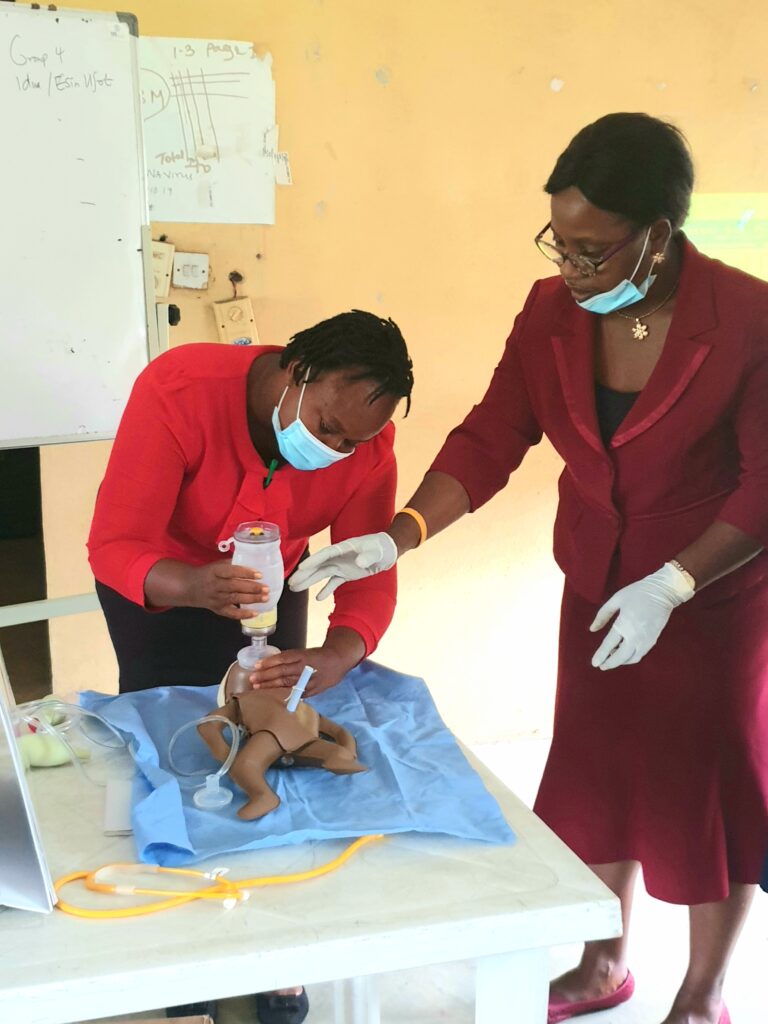
Mrs. Grace Okon, Coordinator, Reproductive Health Unit, Akwa Ibom State Ministry of Health, demonstrating essential care for a new-born at a refresher training for health workers in Nsit Atai LGA on September 8, 2020
One of such interventions tackling maternal and child health challenges is being implemented by Antof Rural Resource Development Centre (ARRDEC). The project is improving uptake of antenatal care (ANC) services and promoting the prevention of mother to child transmission (PMTCT) of HIV in rural communities across Akwa Ibom State. The intervention is also improving access to quality healthcare services through training of health workers for improved healthcare delivery and engaging the wider community for a change in health seeking behaviour.
According to the National Agency for the Control of AIDS (NACA), Nigeria has the greatest number of HIV-infected babies in the world. Akwa Ibom state has the highest HIV prevalence in the country (5.6%). HIV prevalence among pregnant women aged 15-24 years is also highest in Akwa Ibom state. Despite the successes achieved by the PMTCT program in Nigeria, a large percentage of women do not go to health facilities to access ANC and PMTCT services due to poverty and lack of trust in the healthcare system; instead, they patronise the services of traditional birth attendants. In fact, the 2018 NDHS notes that 56% of women giving birth in Nigeria are not assisted by skilled providers.
As part of the strategy to improve uptake of ANC and PMTCT services in Akwa Ibom state, traditional birth attendants are trained for improved maternal care and timely referral of pregnant women to health facilities for HIV screening and delivery. Women are incentivised to take up ANC and PMTCT services at designated health centres, while mentor mothers are engaged to ensure that HIV positive mothers give birth in health facilities where babies can be immediately put on prophylaxis. Also, behavioural change communication for better health seeking behaviour is an integral part of the strategy.
So far, the intervention in Akwa Ibom State has impacted 2,104 pregnant women across six Local Government Areas LGAs) – Oron, Okobo, Udung Uko, Nsit Atai, Mbo and Urue Offong/Oruko – as illustrated below.
Uptake of ANC services

Uptake of PMTCT Services
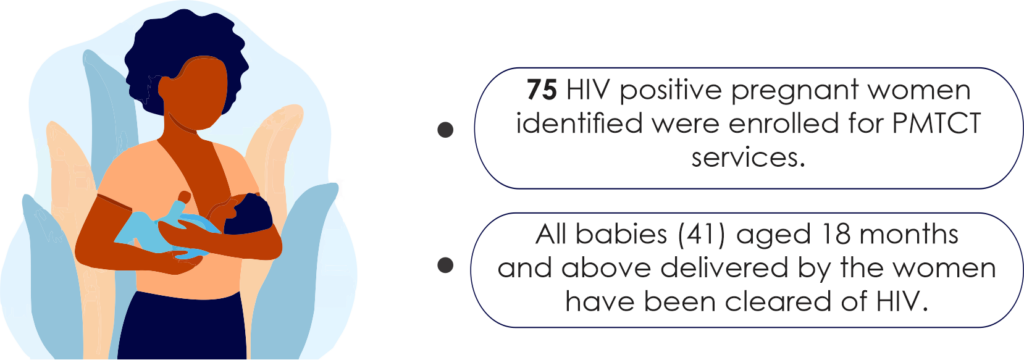
Training of Health Workers and Donation of Equipment
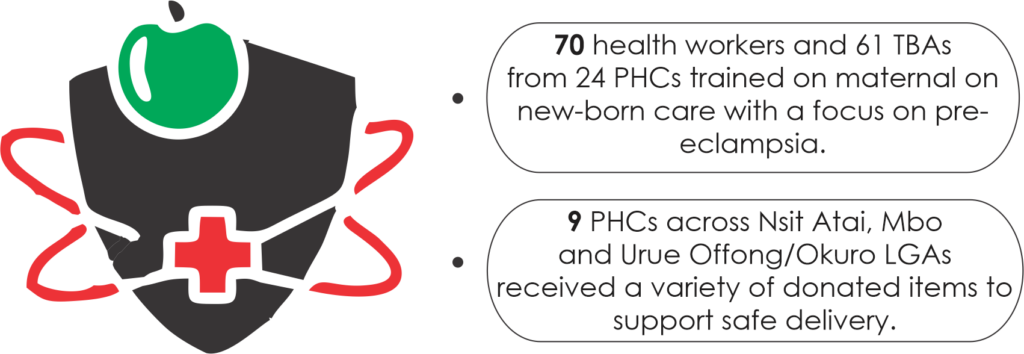
The bar chart below demonstrates that because of this intervention, there is a positive shift in health seeking behaviour and an increase in the uptake of ANC and PMTCT services in the benefiting communities of Akwa Ibom state.
Analysis of ANC Visits Across 9 Project PHCs (2019 – 2020)
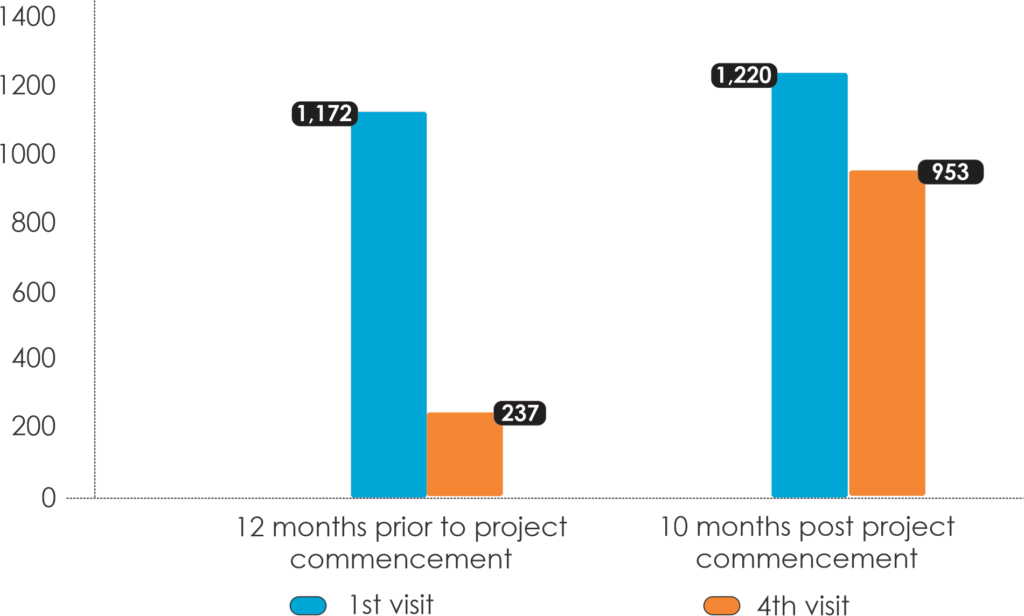
Records from 9 primary healthcare centres revealed that though 1,172 pregnant women registered for ANC during a 12-month period prior to the project, only 20% of the women followed through to the fourth visit as recommended by WHO to achieve the full life saving potential ANC promises for women and their babies. The remaining 80% women reverted to the services of TBAs and mission homes after their first ANC visit. This trend is being reversed by the intervention by ARRDEC. 78% of women who registered for ANC during the first year of project implementation completed at least 4 visits.
The bar chart below shows a significant increase in health facility delivery from a baseline report of 10 deliveries in 12 months prior to the project, to 114 deliveries over a period of 10 months of project implementation.
Number of Deliveries at Ikot Uyo PHC in Nsit Atai LGA of Akwa Ibom State (March – December, 2020)
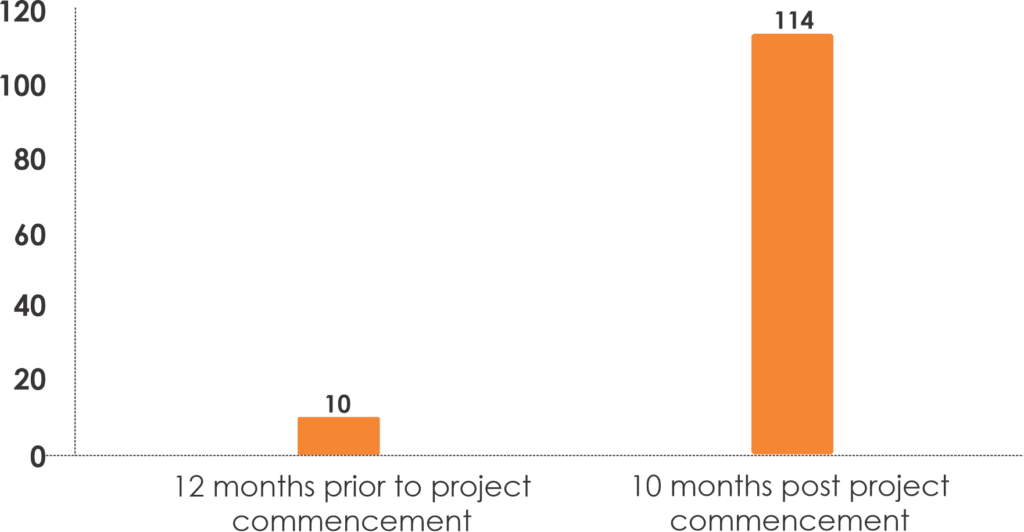
The intervention on reducing maternal and child mortality is hinged on the Foundation’s commitment to improving access to quality and affordable healthcare for people in underserved communities. Since inception, the Foundation has supported over 300 projects across 34 states and the Federal Capital Territory that has impacted on the health and wellbeing of millions of people across Nigeria.
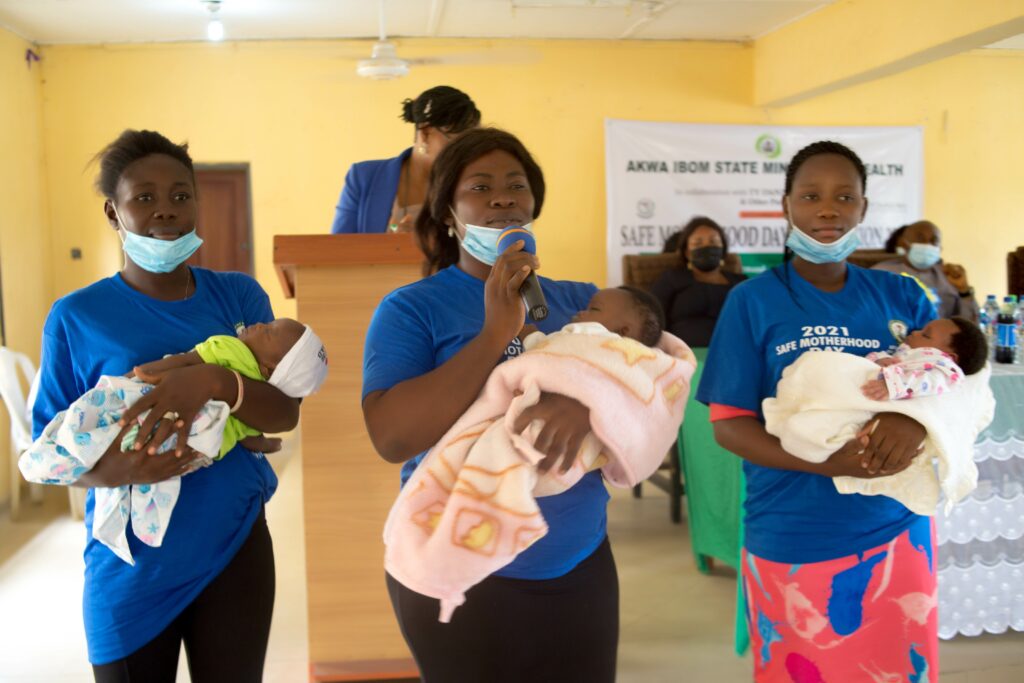
Beneficiaries of the intervention encouraging women of child-bearing age to attend ANCs in Akwa Ibom state.

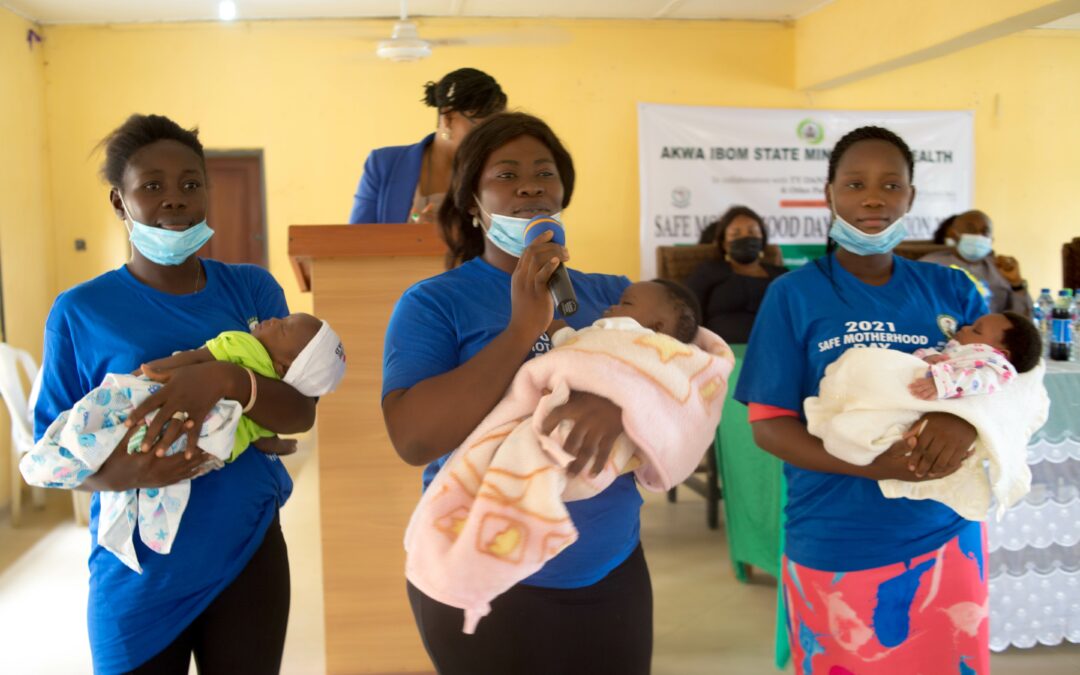


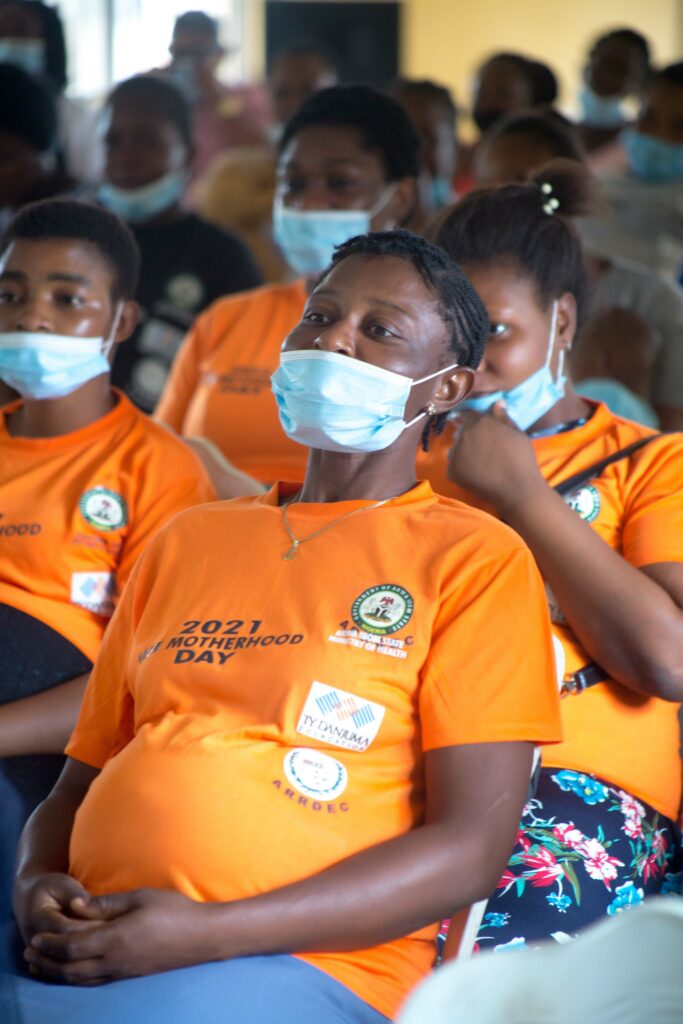
Good morning sir/ma
Please I’m a mother of two a degree holder working in a private school I borrowed some money in Lcredit that is about to die and there is no hope of getting it before the due date also I got some market on credit and my creditor as been calling for me to pay back though the poutry is not yet mature to market.
We could not sleep both me and my husband even the children there is nothing to give them to eat it’s becoming so difficult to meet up with feeding to. Please if there is anything your organisation could help us with even if its a loan that we’ll be repaying in instamentally please help us. For God sake.
From Ilesa Osun State Nigeria
Adediji Abiodun O. is my name
Thanks in anticipation.
I want to know more about Ty foundation and how our NGO Vehbwah mission of Mercy Foundation Jalingo with focus:- on education, healthcare, food security etc can apply for grant
Detailed references or sources are needed on the information provided for academic use. Thank you
Ma please am pregnant and I don’t want the baby please I need help